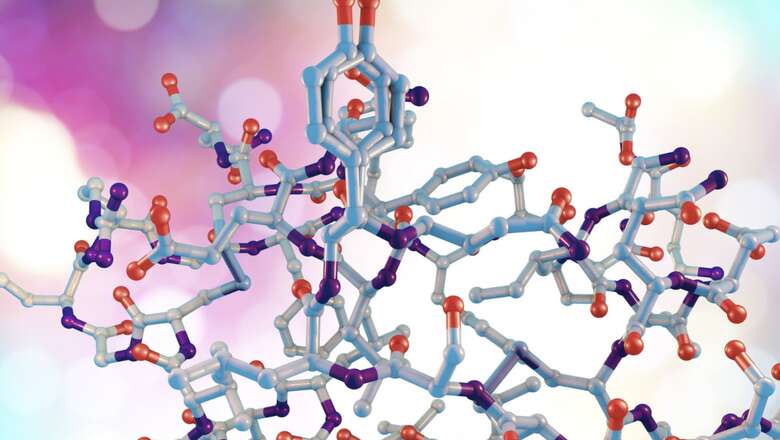
views
The Centre for Cellular and Molecular Biology (CCMB) in Hyderabad is using its sewage surveillance system to find a solution to Antimicrobial Resistance (AMR), which has become a significant health crisis worldwide, especially in India.
The system, which successfully determined the spread of the coronavirus pandemic in different cities based on sewage samples, is now being used to track other diseases such as dengue and monkeypox.
Speaking to News18, CCMB director Dr Vinay K Nandicoori said: “We collect samples from different drains in Hyderabad. The population sheds the SARS-CoV-2 virus through feces which lands in sewage. The samples are processed for detecting the viral genome using the standard Reverse Transcription Polymerase Chain Reaction (RT-PCR) method.”
“Besides this, we are also using the samples to profile bacteria that have developed resistance to multiple antibiotics. This helps us in getting a view about the superbugs present in the community.”
DRUG-RESISTANT PATHOGENS
The CCMB’s work gains significance in light of the recently-released ICMR paper, which says that there has been a sustained increase in drug-resistant pathogens that no longer respond to available medicines.
This means that infections that were easily treatable earlier are no longer so. The data analysis done between January 1 and December 31, 2021 says that resistance to Imipenem, which is used to treat infections caused by bacteria Escherichia coli, has increased from 14% in 2016 to 36% in 2021. Other species such as Klebsiella pneumonia, too, showed lower susceptibility to antibiotics.
Dr Archana Bharadwaj Siva, a Senior Scientist at CCMB, said: “Bacteria become resistant to antibiotics through mutations in their genome. In India, too, antibiotics are not prescribed judiciously many a times. Patients pop them even when the infection is not caused by bacteria, but by viruses. This indiscriminate use leads to the emergence of superbugs that do not respond to known medications.”
WHO SAYS
The World Health Organization (WHO) says that more expensive medicines have to be used when first-line antibiotics can no longer treat infections. A longer duration of illness and treatment, often in hospitals, increases healthcare costs as well as the economic burden on families and societies.
“Antibiotic resistance is putting the achievements of modern medicine at risk. Organ transplants, chemotherapy, and surgeries such as caesarean sections become much more dangerous without effective antibiotics for the prevention and treatment of infections,” adds WHO, asking doctors to only prescribe and dispense antibiotics when needed.
HOW THE RESEARCH HELPS
In this scenario, CCMB’s work can go a long way in understanding how these bacterial species are developing resistance fast.
Dr Archana Bharadwaj Siva explained the method of profiling the microbes found in the sewage system: “We are trying to do the anti-microbial resistance (AMR) profiling of the population through sewage /wastewater sequencing. In sequencing approaches, one can do targeted sequencing for a specific pathogen, etc., in case you know what you are looking for.”
Another approach is untargeted, where you do whole genome sequencing and can pull up information regarding the diversity that represents a particular environmental/biological niche, she said.
“We use the untargeted (whole) genome sequencing method for anti-microbial resistance profiling. We have specific reference databases against which we can compare the samples and see the microbial species with AMR signatures. Besides Hyderabad, we are doing this exercise in Kolkata, Delhi, Chennai, and several cities of Maharashtra (in all, we are sampling 76 sites from 24 cities). Samples are collected from either STPs or open-flowing Nallahs/drains. We start with around 40 ml sewage sample, which gives us enough DNA for subsequent sequencing protocols,” she added.
Read all the Latest News India and Breaking News here




















Comments
0 comment